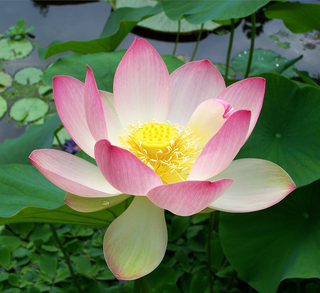It’s a fact, says Buddhism, that we’ll experience discomfort, stress, and even suffering in life —not always, to be sure, but at least some of the time. But we humans, observes
Buddhism, are notoriously bad at handling difficulties. We deploy all sorts of strategies to avoid it, from distracting ourselves with entertainment to denial to running away. Most of these responses not only don’t solve but can even compound our problems.
Buddhism takes a rather bold, counterintuitive approach to suffering. It suggests that we candidly acknowledge what’s happening and then turn toward the suffering. We then
engage it directly as a teacher and as a source for developing our character, wisdom, and compassion. The idea extends as far as seeing difficulties as a pathway to enlightenment. You might say the Buddhist approach to suffering is the ultimate “growth mindset.”
The traditional symbol for this idea is the lotus flower, whose pristine, colorful bloom arises from the murky waters of swamps. Zen master Thich Nhat Hanh coined the memorable phrase, “No mud, no lotus” to capture the idea that spiritual awakening is sourced in the difficulties of our lives. This phrase can serve as a useful reminder that, when we hit an extraordinarily difficult moment, we can shift our attitude from one of resentment and resistance to one of interest, openness, and transformation. When you’re having a really hard time, try saying to yourself, “No mud, no lotus.” (It’s okay to say it sarcastically at first, acknowledging that it’s really hard to see what’s good about such a bad situation!) Then consider the ways in which the challenge offers the potential for maturing, expanding your life skills, and becoming a lotus.
